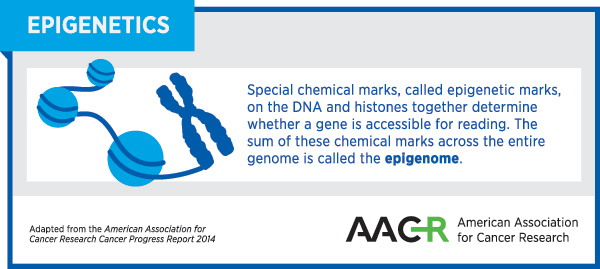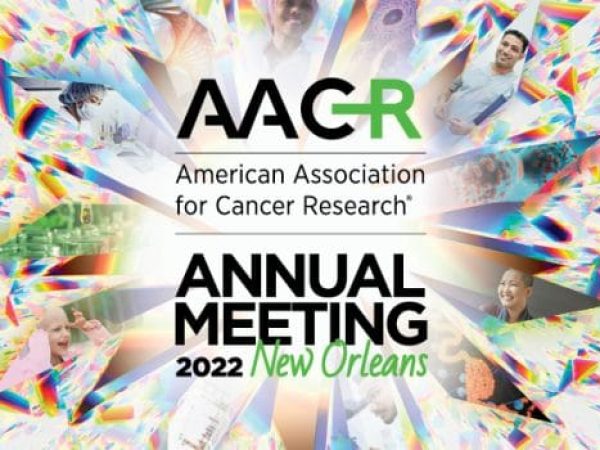Catalyzing Progress in Epigenetics Research
Later today, more than 200 scientists working diligently to advance the field of epigenetics research will convene in Atlanta for a four-day conference on Chromatin and Epigenetics organized by the American Association for Cancer Research (AACR). Once ensconced at the Loews Atlanta, they will discuss the latest findings in the field as well as how these findings are being investigated and applied as therapies for cancer treatment.

Conference Co-chairperson Peter A. Jones, PhD, DSc, research director and chief scientific officer at Van Andel Research Institute (VARI) in Grand Rapids, Michigan, explained why epigenetics research has emerged over the past decade as one of the most exciting areas of cancer research. “Recently, mutations in genes that modify the epigenome have been found to be very common in human cancers, strongly implicating a role for altered epigenomes in cancer,” he said. “In support of this idea, all human cancers harbor epigenetic (particularly DNA methylation) alterations. These findings identify the cancer epigenome as a target for therapy since the changes are potentially reversible by known drugs and new ones under development.”
In fact, there are currently six anticancer therapeutics approved by the U.S. Food and Drug Administration (FDA) that modify the epigenome. As I discussed in a previous post on this blog, these therapeutics fall into two categories—histone deacetylase (HDAC) inhibitors and DNA methyltransferase inhibitors.

According to Jones, one of the topics that will be discussed at the conference is how to extend the clinical reach of epigenetic therapeutics by combining them with other existing treatment modalities, in particular immunotherapeutics. Earlier this year, he explained in a post on this blog that “epigenetic therapies also show early signs of being able to sensitize cancers to existing chemotherapies, making these treatments more effective.”
When it comes to exciting developments in basic epigenetics research, Jones pointed to the ability to use a smaller and smaller number of cells to interrogate the epigenome in its entirety, which he says allows for a much more holistic approach to advancing our understanding of cancer-associated epigenetic abnormalities. Indeed, he expects data on interactions between epigenetic modifiers in small cell numbers to be one of the top breakthroughs presented at the conference.
As Jones emphasized in a video interview earlier this year, with basic, translational, and clinical researchers from the breadth of the career spectrum attending the conference, it is sure to catalyze the exchange of knowledge and formation of collaborations necessary to power progress at this exciting time in epigenetics research.
https://youtu.be/PfRauy54OVk
Peter A. Jones, PhD, DSc, is a past president of the AACR and was elected as a fellow of the AACR Academy in 2013.



